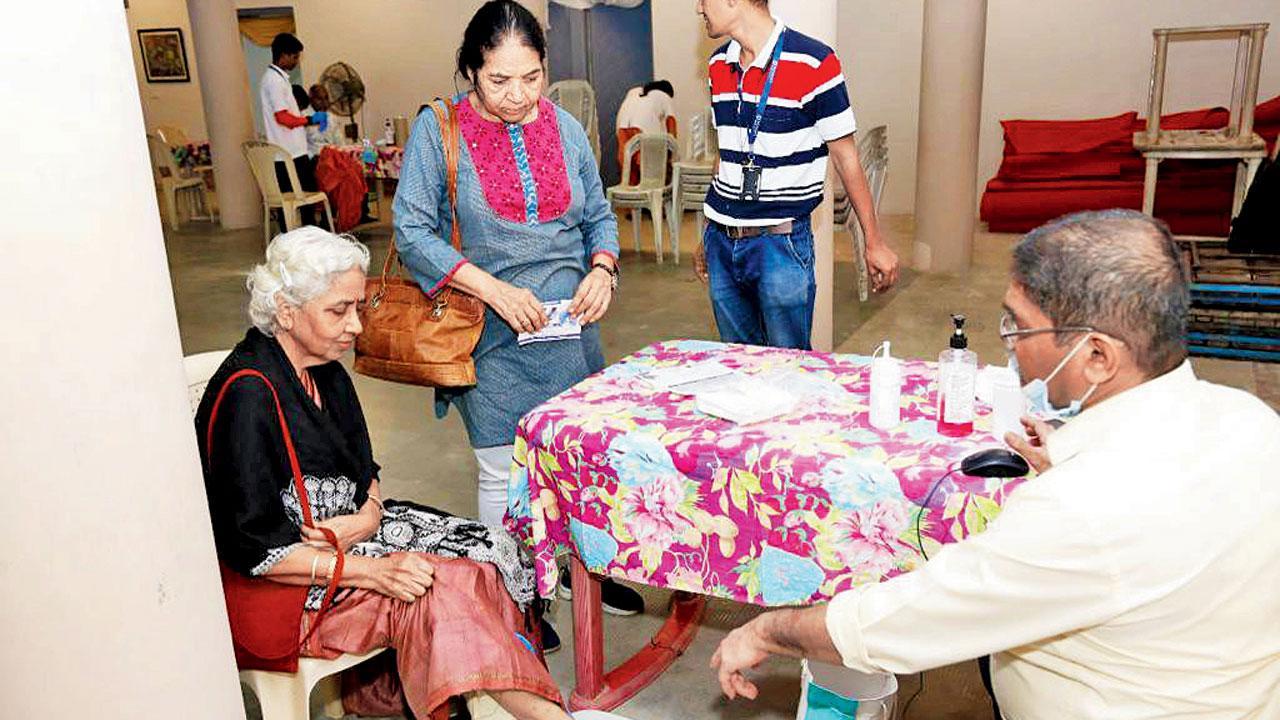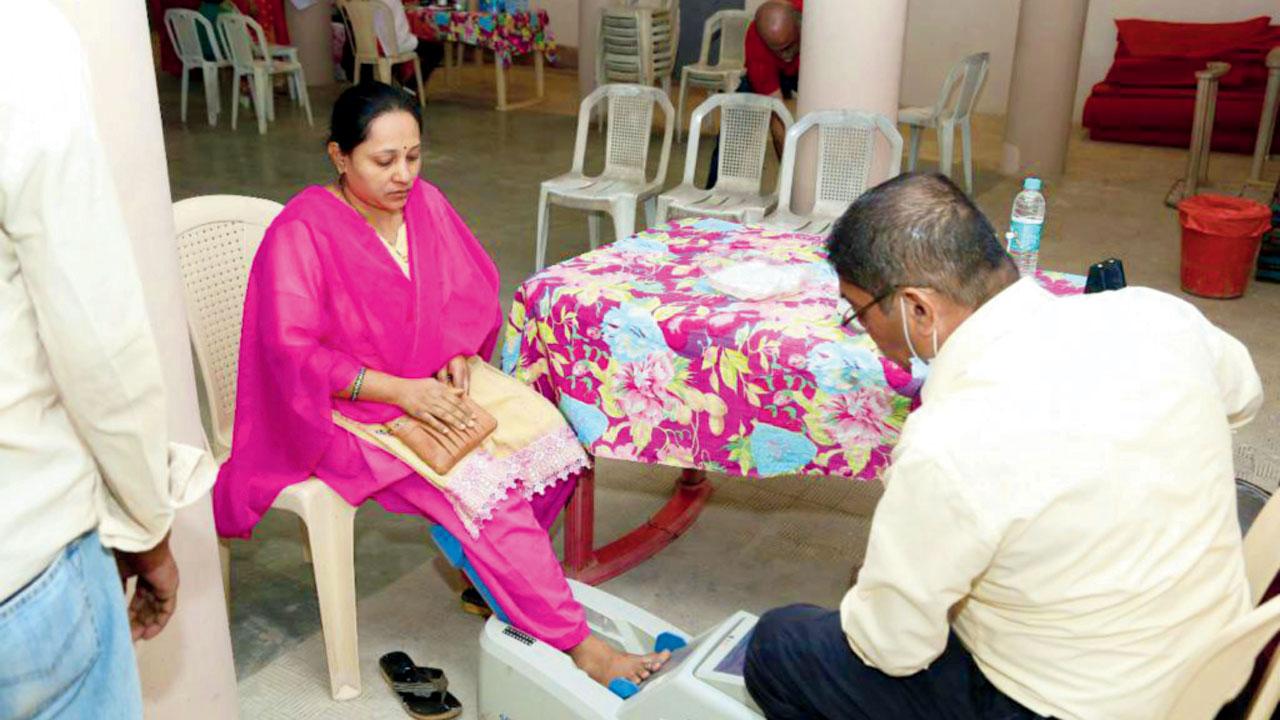Study of 1,921 women conducted by city hospital also found 27pc participants suffering from osteoporosis

A woman participates in the study to check bone density at the Nanavati Max hospital
A recent study to check the prevalence of osteoporosis in women over age 40, revealed that 63 per cent of the participants suffered from osteopenia, a milder form of bone loss, with almost 27 per cent suffering from osteoporosis. These conditions, responsible for the silent degradation of bones, can cause fractures, permanent disability and even death. The study analysed the data of 1,921 women, aged between 40-95 years. Many women were not aware of these condition, hence the study by the Nanavati Max Super-speciality Hospital emphasizes the importance of early screening and prevention strategies to reduce the risks and their associated complications.
ADVERTISEMENT
According to doctors from Nanavati, many women patients over age 40 had complained about backache, joint pain, etc. without specific history. They were detected with osteoporosis, so to check the exact prevalence, the hospital decided to conduct the study. Dr Gayatri Deshpande, senior consultant gynaecologist, and Dr Janvi Lalchandani, assistant medical officer from the Department of Obstetrics and Gynaecology, screened over 5,034 patients’ data in a period of 18 months, from September 2021 to February 2023. The researchers excluded high risk groups such as women with previous diagnosis of osteoporosis or osteopenia, current or past history of cancer, fractures and only considered women over the age of 40.
Also Read: Mumbai: Skin donation up but still far from pre-COVID levels
What the study found
Four major sites of bone degeneration - lumbar region, femoral neck, 1/3 femur, and total body were considered to determine the prevalence of these conditions. After excluding the high risk groups, the study analysed the data of 1,921 women, aged between 40-95 years, who underwent Dual-Energy X-ray Absorptiometry (DEXA) scan which measures bone mass density. The screening revealed that 3 out of 5 women suffered from osteopenia, and 1 in 4 were diagnosed with osteoporosis.

A woman participates in the study
Osteopenia of the femoral neck, which was found in almost 50 per cent of the participants in the age group of 61-80 years, multiplies the risk of hip fractures and causes significant disability, reduced quality of life, and even mortality in some cases. In osteoporosis, bones become weak and brittle, making them more likely to break. Osteopenia is a milder form of bone loss that can progress to osteoporosis if left untreated. These conditions are common in women of peri and postmenopausal age group.
One out of five participants were diagnosed with osteoporosis in the lumbar region, increasing the risks of compression fractures of the vertebrae and spinal deformity, such as dowager’s hump, which can affect breathing and increase the risk of falls. “Estrogen—responsible for improving bone health and reducing calcium degeneration from the bones, depletes drastically after menopause. This increases the chances of bone decay in older women," Dr Deepak Patkar, head, Imaging and Director (Medical Services), whose team performed the DEXA scans, said.
Routine check-ups needed
The study's results highlight the importance of targeted screening and prevention strategies. While osteopenia can be maintained, osteoporosis cannot be reversed. Thus, routine check-ups, including bone density scans specifically performed using DEXA technology are recommended for women over the age of 30 every five years.
“Women, on a daily basis, suffer in silence during simple tasks such as kneading dough, twisting a doorknob, steering a car, or even walking on a slippery floor or sandy beach. Bone fractures caused by these conditions can result in hospitalisation, surgery, and long-term disability. Studies such as these will help us prevent the conditions in future,” said Dr Deshpande.
Regular check-ups are also crucial in maintaining good bone health. Based on the evaluation, doctors can recommend preventive measures, such as calcium and vitamin D supplements, weight-bearing exercises, and medication.
 Subscribe today by clicking the link and stay updated with the latest news!" Click here!
Subscribe today by clicking the link and stay updated with the latest news!" Click here!







